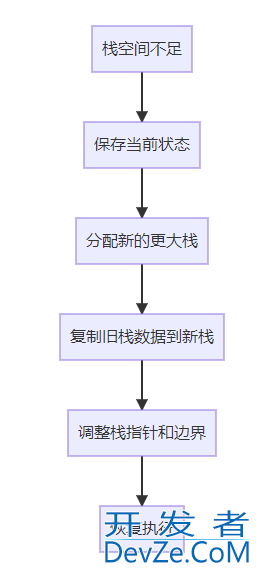C++ Boost StringAlgorithms超详细讲解
目录
- 一、提要
- 二、简化字符串处理的工具和其库
- 三、应用Boost.StringAlgrithms库
- 3.1 字符大小写
- 3.2 删除字符串内子串
- 3.3 查找字符串内子串
- 3.4 合并字符串
- 3.5 子串替换
- 3.6 字符串修剪
- 3.7 创立谓词
- 3.8 比较
- 3.9 拆分字符串
- 3.10 查找字符串
- 练习
一、提要
boost C++对应的字符串对象也有一套标准操作方法。本文介绍库Boost.StringAlgorithms的若干函数和功能示例。
二、简化字符串处理的工具和其库
- Boost.StringAlgorithms 定义了许多专门针对字符串的算法。例如,您会找到将字符串转换为小写或大写的算法。
- Boost.LexicalCast 提供了一个转换运算符来将数字转换为字符串,反之亦然。该库在内部使用字符串流,但可能针对某些类型之间的转换进行了优化。
- Boost.Format 为 std::printf() 提供了一个类型安全的替代方案。像 Boost.LexicalCast 一样,这个库在内部使用字符串流。如果定义了输出流操作符,Boost.Format 是可扩展的并且支持用户定义的类型。
- Boost.Regex 和 Boost.Xpressive 是使用正则表达式在字符串中搜索的库。虽然 Boost.Regex 期望将正则表达式写成字符串,但 Boost.Xpressive 允许您将它们写成 C++ 代javascript码。
- Boost.Tokenizer 使得迭代字符串中的子字符串成为可能。
- Boost.Spirit 可用于开发基于类似于 Extended Backus-Naur-Form 规则的解析器。
三、应用Boost.StringAlgrithms库
Boost.StringAlgorithms 库为字符串操作提供了许多独立的函数。字符串的类型可以是 std::string、std::wstring 或类模板 std::basic_string 的任何其他实例。这包括 C++11 引入的字符串类 std::u16string 和 std::u32string。
这些函数被分类在不同的头文件中。例如,从大写转换为小写的函数在 boost/algorithm/string/case_conv.hpp 中定义。因为 Boost.StringAlgorithms 包含 20 多个不同的类别和尽可能多的头文件,为了方便起见,boost/algorithm/string.hpp 充当通用头文件,包括所有其他头文件。
3.1 字符大小写
示例1.将字符转化成大写(to_upper_copy)
#include <boost/algorithm/string.hpp>
#include <string>
#include <IOStream>
using namespace boost::algorithm;
int main()
{
std::string s = "Boost C++ Libraries";
std::cout << to_upper_copy(s) << '\n';
}
函数 boost::algorithm::to_upper_copy() 将字符串转换为大写,boost::algorithm::to_lower_copy() 将字符串转换为小写。这两个函数都返回输入字符串的副本,转换为指定的大小写。要就地转换字符串,请使用函数 boost::algorithm::to_upper() 或 boost::algorithm::to_lower()。
示例 1 使用 boost::algorithm::to_upper_copy() 将字符串“Boost C++ Libraries”转换为大写。该示例将 BOOST C++ LIBRARIES 写入标准输出。
Boost.StringAlgorithms 中的函数会考虑语言环境。如果没有将语言环境作为参数显式传递,则诸如 boost::algorithm::to_upper_copy() 之类的函数会使用全局语言环境。
示例2.使用语言环境将字符串转换为大写
#include <boost/algorithm/string.hpp>
#include <string>
#include <locale>
#include <iostream>
using namespace boost::algorithm;
int main()
{
std::string s = "Boost C++ k\xfct\xfcphaneleri";
std::string upper_case1 = to_upper_copy(s);
std::string upper_case2 = to_upper_copy(s, std::locale{"Turkish"});
std::locale::global(std::locale{"Turkish"});
std::cout << upper_case1 << '\n';
std::cout << upper_case2 << '\n';
}
示例 2 调用 boost::algorithm::to_upper_copy() 两次以将土耳其语字符串“Boost C++ kütüphaneleri”转换为大写。第一次调用 boost::algorithm::to_upper_copy() 使用全局语言环境,在本例中为 C 语言环境。在 C 语言环境中,带有变音符号的字符没有大写映射,因编程客栈此输出将如下所示:BOOST C++ KüTüPHANELERI。
土耳其语语言环境被传递给对 boost::algorithm::to_upper_copy() 的第二次调用。由于此语言环境确实具有变音符号的大写等效项,因此可以将整个字符串转换为大写。因此,对 boost::algorithm::to_upper_copy() 的第二次调用正确地转换了字符串,如下所示:BOOST C++ KÜTÜPHANELERI。
注意:
如果您想在 POSIX 操作系统上运行示例,请将“Turkish”替换为“tr_TR”,并确保安装了土耳其语区域设置。
3.2 删除字符串内子串
示例3.从字符串中删除字符的算法
#include <boost/algorithm/string.hpp>
#include <string>
#include <iostream>
using namespace boost::algorithm;
int main()
{
std::string s = "Boost C++ Libraries";
std::cout << erase_first_copy(s, "s") << '\n';
std::cout << erase_nth_copy(s, "s", 0) << '\n';
std::cout << erase_last_copy(s, "s") << '\n';
std::cout << erase_all_copy(s, "s") << '\n';
std::cout << erase_head_copy(s,python 5) << '\n';
std::cout << erase_tail_copy(s, 9) << '\n';
}
Boost.StringAlgorithms 提供了几个函数,可用于从字符串中删除单个字符(参见示例 3)。例如, boost::algorithm::erase_all_copy() 将从字符串中删除所有出现的特定字符。要仅删除第一次出现的字符,请改用 boost::algorithm::erase_first_copy()。要在任一端将字符串缩短特定数量的字符,请使用函数 boost::algorithm::erase_head_copy() 和 boost::algorithm::erase_tail_copy()。
3.3 查找字符串内子串
示例4. 查找字串boost::algorithm::find_first()
#include <boost/algorithm/string.hpp>
#include <string>
#include <iostream>
using namespace boost::algorithm;
int main()
{
std::string s = "Boost C++ Libraries";
boost::iterator_range<std::string::iterator> r = find_first(s, "C++");
std::cout << r << '\n';
r = find_first(s, "xyz");
std::cout << r << '\n';
}
函数如 boost::algorithm::find_first()、boost::algorithm::find_last()、boost::algorithm::find_nth()、boost::algorithm::find_head() 和 boost::algorithm::find_tail () 可用于在字符串中查找字符串。
所有这些函数都返回一对 boost::iterator_range 类型的迭代器。这个类源自Boost.Range,它实现了基于迭代器概念的范围概念。由于运算符 operator<< 为 boost::iterator_range 重载,因此单个搜索算法的结果可以直接写入标准输出。示例 4 为第一个结果打印 C++,为第二个结果打印一个空字符串。
3.4 合并字符串
示例.5. 合并字符串boost::algorithm::join()
#include <boost/algorithm/string.hpp>
#include <string>
#include <vector>
#include <iostream>
using namespace boost::algorithm;
int main()
{
std::vector<std::string> v{"Boost", "C++", "Libraries"};
std::cout << join(v, " ") << '\n';
}
字符串容器作为第一个参数传递给函数 boost::algorithm::join(),该函数将它们连接起来,由第二个参数分隔。示例 5.5 将输出 Boost C++ 库。
3.5 子串替换
示例6.替换字符串中字符的算法
#include <boost/algorithm/string.hpp>
#include <string>
#include <iostream>
using namespace boost::algorithm;
int main()
{
std::string s = "Boost C++ Libraries";
std::cout << replace_first_copy(s, "+", "-") << '\n';
std::cout << replace_nth_copy(s, "+", 0, "-") << '\n';
std::cout << replace_last_copy(s, "+", "-") << '\n';
std::cout << replace_all_copy(s, "+", "-") << '\n';
std::cout << replace_head_copy(s, 5, "BOOST") << '\n';
std::cout << replace_tail_copy(s, 9, "LIBRARIES") << '\n';
}
与搜索字符串或从字符串中删除字符的函数一样,Boost.StringAlgorithms 也提供了替换字符串中的子字符串的函数。其中包括以下函数:boost::algorithm::replace_first_copy()、boost::algorithm::replace_nth_copy()、boost::algorithm::replace_last_copy()、boost::algorithm::replace_all_copy()、boost::algorithm ::replace_head_copy() 和 boost::algorithm::replace_tail_copy()。它们可以以与搜索和删除函数相同的方式应用,除了它们需要一个额外的参数 - 替换字符串(参见示例 6)。
3.6 字符串修剪
示例7.修剪字符串的算法
#include <boost/algorithm/string.hpp>
#include <string>
#include <iostream>
using namespace boost::algorithm;
int main()
{
std::string s = "\t Boost C++ Libraries \t";
std::cout << "_" << trim_left_copy(s) << "_\n";
std::cout << "_" << trim_right_copy(s) << "_\n";
std::cout << "_" << trim_copy(s) << "_\n";
}
要删除字符串两端的空格,请使用 boost::algorithm::trim_left_copy()、boost::algorithm::trim_right_copy() 和 boost::algorithm::trim_copy()(参见示例 5.7)。全局语言环境确定哪些字符被视为空格。
Boost.StringAlgorithms 允许您提供谓词作为不同函数的附加参数,以确定函数应用于字符串的哪些字符。带有谓词的版本是:boost::algorithm::trim_right_copy_if()、boost::algorithm::trim_left_copy_if() 和 boost::algorithm::trim_copy_if()。
3.7 创立谓词
示例8.创建谓词1is_any_of
boost::algorithm::is_any_of()
#include <boost/algorithm/string.hpp>
#include <string>
#include <iostream>
using namespace boost::algorithm;
int main()
{
std::string s = "--Boost C++ Libraries--";
std::cout << trim_left_copy_if(s, is_any_of("-")) << '\n';
std::cout << trim_right_copy_if(s, is_any_of("-")) << '\n';
std::cout << trim_copy_if(s, is_any_of("-")) << '\n';
}
示例 8 使用另一个名为 boost::algorithm::is_any_of() 的函数,它是一个辅助函数,用于创建一个谓词,用于检查某个字符(作为参数传递给 is_any_of() )是否存在于字符串中。使用 boost::algorithm::is_any_of(),可以指定修剪字符串的字符。示例 5.8 使用连字符。
Boost.StringAlgorithms 提供了许多返回常用谓词的辅助函数。
示例9.创建谓词2(is_digit() )
boost::algorithm::is_digit()
#include <boost/alg开发者_JAV培训orithm/string.hpp> #include <string> #include <iostream> using namespace boost::algorithm; int main() { std::string s =编程 "123456789Boost C++ Libraries123456789"; std::cout << trim_left_copy_if(s, is_digit()) << '\n'; std::cout << trim_right_copy_if(s, is_digit()) << '\n'; std::cout << trim_copy_if(s, is_digit()) << '\n'; }
boost::algorithm::is_digit() 返回的谓词测试字符是否为数字。在示例9 中,boost::algorithm::is_digit() 用于从字符串 s 中删除数字。
Boost.StringAlgorithms 还提供了辅助函数来检查字符是大写还是小写:boost::algorithm::is_upper() 和 boost::algorithm::is_lower()。默认情况下,所有这些函数都使用全局语言环境,除非您将不同的语言环境作为参数传递。
除了验证字符串的单个字符的谓词之外,Boost.StringAlgorithms 还提供了可以处理字符串的函数(参见示例 10)。
3.8 比较
示例10.字符串的比较
#include <boost/algorithm/string.hpp>
#include <string>
#include <iostream>
using namespace boost::algorithm;
int main()
{
std::string s = "Boost C++ Libraries";
std::cout.setf(std::ios::boolalpha);
std::cout << starts_with(s, "Boost") << '\n';
std::cout << ends_with(s, "Libraries") << '\n';
std::cout << contains(s, "C++") << '\n';
std::cout << lexicographical_compare(s, "Boost") << '\n';
}
boost::algorithm::starts_with()、boost::algorithm::ends_with()、boost::algorithm::contains() 和 boost::algorithm::lexicographical_compare() 函数比较两个单独的字符串。示例 11 引入了一个将字符串拆分为较小部分的函数。
3.9 拆分字符串
示例 11.拆分字符串boost::algorithm::split()
#include <boost/algorithm/string.hpp>
#include <string>
#include <vector>
#include <iostream>
using namespace boost::algorithm;
int main()
{
std::string s = "Boost C++ Libraries";
std::vector<std::string> v;
split(v, s, is_space());
std::cout << v.size() <<编程; '\n';
}
使用 boost::algorithm::split(),可以根据分隔符拆分给定的字符串。子字符串存储在容器中。该函数需要一个谓词作为其第三个参数,该谓词测试每个字符并检查字符串是否应在给定位置拆分。示例 5.11 使用辅助函数 boost::algorithm::is_space() 创建一个谓词,在每个空格字符处分割字符串。
本章介绍的许多函数都有忽略字符串大小写的版本。这些版本通常具有相同的名称,但前导“i”除外。例如,boost::algorithm::erase_all_copy() 的等效函数是 boost::algorithm::ierase_all_copy()。
最后,Boost.StringAlgorithms 的很多函数也支持正则表达式。示例 5.12 使用函数 boost::algorithm::find_regex() 来搜索正则表达式。
3.10 查找字符串
示例12.字符串查找boost::algorithm::find_regex()
#include <boost/algorithm/string.hpp>
#include <boost/algorithm/string/regex.hpp>
#include <string>
#include <iostream>
using namespace boost::algorithm;
int main()
{
std::string s = "Boost C++ Libraries";
boost::iterator_range<std::string::iterator> r =
find_regex(s, boost::regex{"\\w\\+\\+"});
std::cout << r << '\n';
}
为了使用正则表达式,程序会访问一个名为 boost::regex 的类,该类将在第 8 章中介绍。
示例 12 将 C++ 写入标准输出。
练习
创建一个程序,要求用户输入他的全名。程序应该用“Hello”来问候用户,然后是用户名和感叹号。用户的名字和姓氏应以大写字母开头,后跟小写字母。此外,用户的名字和姓氏应该用一个空格隔开。感叹号前不能有空格。
到此这篇关于C++ Boost StringAlgorithms超详细讲解的文章就介绍到这了,更多相关C++ Boost StringAlgorithms内容请搜索我们以前的文章或继续浏览下面的相关文章希望大家以后多多支持我们!






 加载中,请稍侯......
加载中,请稍侯......
精彩评论